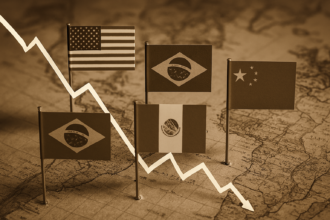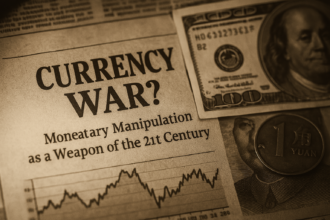In the name of economic sovereignty, the United States has raised tariffs on a range of imported products — including Brazilian food and commodities. The justification? “To protect domestic production.” The effect? Disorganization in Brazilian agribusiness, increase in stocks, fall in domestic prices and diplomatic tension.
Brazil's dependence on the US market is particularly sensitive in the agricultural sector. Soybeans, meat, ethanol and corn are among the most exposed products. In 2024, the US was the second largest destination for Brazilian agricultural exports. Now, in 2025, American protectionism turns this partnership into vulnerability.
“Anyone who depends on a single client, in practice, has a boss.”
– Popular saying among exporters
The impact is not just commercial. The tariffs affect the exchange rate, put pressure on domestic inflation and expose the fragility of Brazilian foreign policy, which in recent years has oscillated between ideological submission and strategic disorientation.
In the previous article, we showed how Trump reignited the trade war. Now, we see the direct consequences for Brazil — a country that insists on acting like a rhetorical power, but behaves like an economic vassal.





